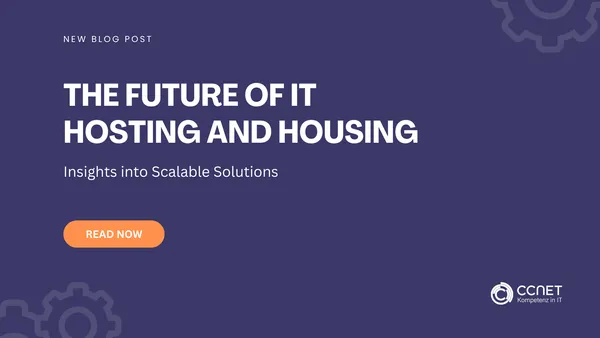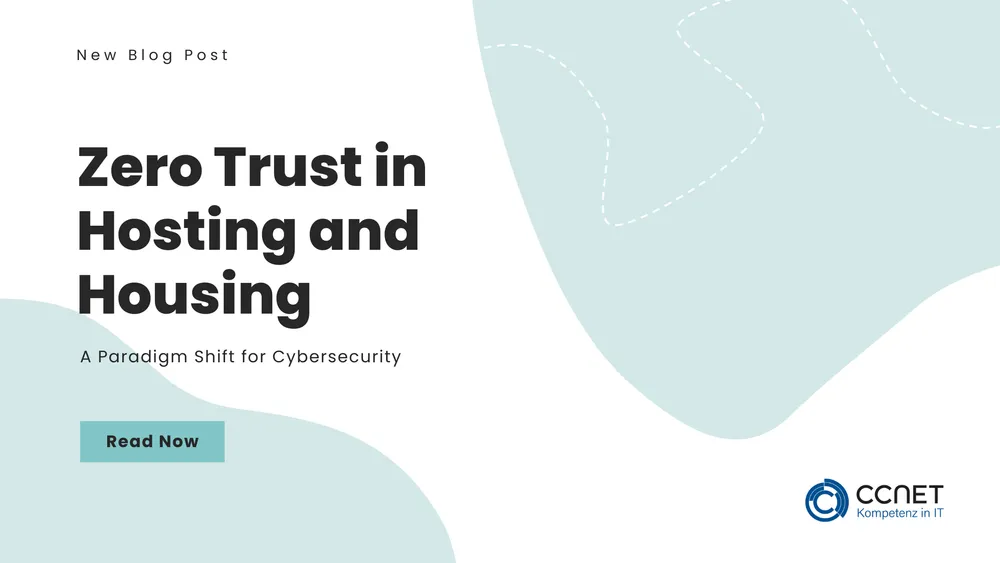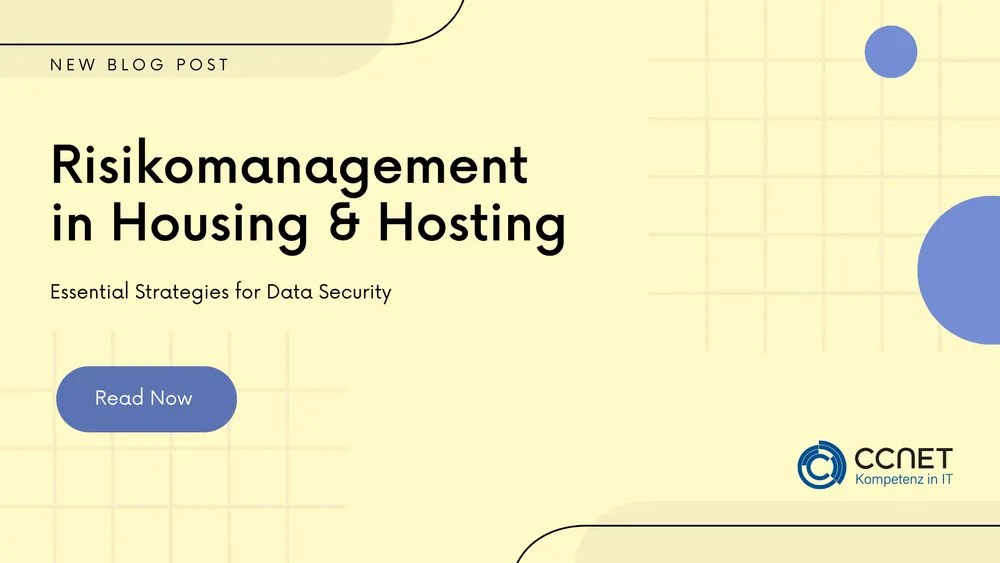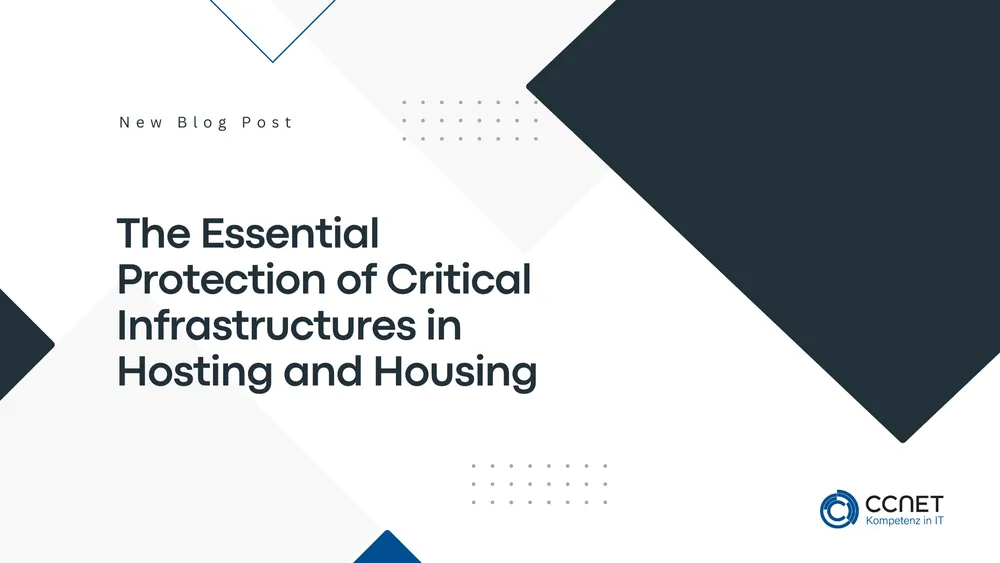
CCNet
Jul 17, 2024 • 2 min read

The Future of IT Hosting and Housing: Flexible Solutions for Scaling Your IT Resources
The ability to adapt quickly to changing market demands can make the difference between success and failure. In this context, IT hosting and housing play a central role. They provide the necessary flexibility and efficiency to support scaling and drive modern business models.
Further information can be found here: IT-Services
What is Meant by IT Hosting and Housing?
IT hosting refers to the provision of IT infrastructure, servers, storage, and network resources made accessible to customers over the internet. These services can be offered in various forms, including Infrastructure as a Service (IaaS), Platform as a Service (PaaS), and Software as a Service (SaaS).
On the other hand, IT housing, or colocation, refers to the provision of physical space for a company's IT infrastructure in an external data center. Customers rent rack space and benefit from the provider's advanced infrastructure and security measures while managing their hardware themselves.
The Role of Content Delivery Networks (CDNs)
An essential aspect of modern IT hosting solutions is the Content Delivery Network (CDN). CDNs accelerate the transport of web content by caching copies of data on various servers worldwide, significantly reducing access times for users. They play a crucial role in optimizing the performance of online offerings and enhancing the user experience through fast loading times and low latency.
Flexible Solutions for Growing Requirements
The future of IT hosting and housing lies in flexible and scalable solutions that allow companies to seamlessly and cost-effectively expand or reduce their IT infrastructure. This flexibility is crucial for responding to market changes and optimizing operating costs.
Technological advancements and the increasing acceptance of cloud services are driving development in this area. Companies benefit from tailored hosting solutions specifically designed to meet their individual needs, whether through dedicated servers for performance-intensive applications or through cloud-based services for enhanced flexibility and scalability.
Security and Compliance
With increasing dependence on digital resources, the requirements for security and compliance are also growing. Hosting and housing providers must implement comprehensive security measures to prevent data loss, downtime, and security breaches. This includes physical security measures, data encryption, regular security audits, and compliance with data protection standards.
Conclusion
The future of IT hosting and housing promises exciting developments, particularly in terms of flexibility, scalability, and security. Companies that strategically leverage these technologies can increase efficiency, reduce costs, and secure their competitiveness in an increasingly digital world.


